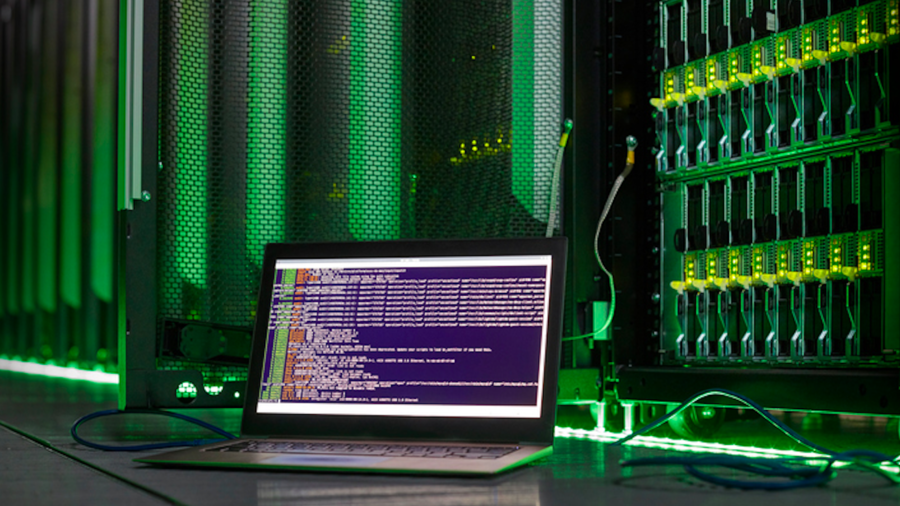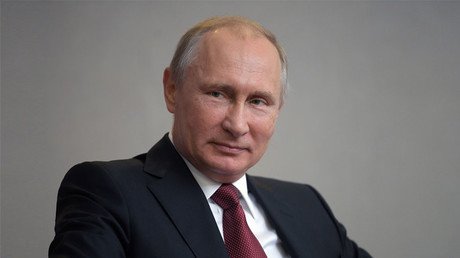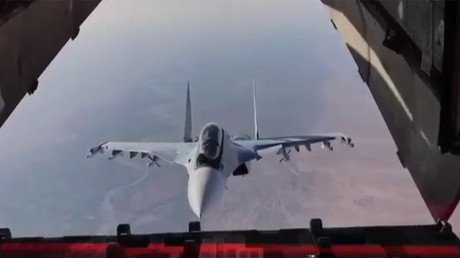US & allies hit Russia with coordinated avalanche of hacking accusations. Here are the allegations

Russia on Thursday faced a coordinated barrage of accusations from the US and its NATO allies, which claimed Moscow was behind a slew of recent malicious cyber-attacks around the world.
The accusations were leveled almost simultaneously by the US, the UK, the Netherlands, and Canada – and included charges about alleged attacks on the Organisation for the Prohibition of Chemical Weapons (OPCW) and the World Anti-Doping Agency, among others.
US indictments
The US Justice Department indicted seven Russian military intelligence figures, claiming they had targeted the OPCW – the watchdog agency that has been responsible for investigating the poisoning of ex-Russian spy Sergei Skripal and his daughter in March. They also claimed the seven men were involved in leaking Olympic athletes’ drug test data and in an attack on a Pennsylvania nuclear energy company.
US prosecutors say that the alleged Russian cyber attackers were targeting officials who supported a ban on Russian athletes competing in international sporting events.
British accusations
The British Foreign Office attributed six attacks to Russia, including the World Anti-Doping Agency attacks of 2017, the theft of emails from a UK television station in 2015 and the alleged hack of the Democratic National Committee (DNC) in 2016 during the US presidential election campaign.
They also blamed Russia for the 2017 'BadRabbit' attack which caused disruption at metro stations and an airport in Ukraine, as well as at Russian media outlets and the Russian central bank.
In a characteristically dramatic statement, British foreign secretary Jeremy Hunt said “the ability of people around the world to go about their daily lives free from interference, and even their ability to enjoy sport” was under threat due to Russian attacks.
Netherlands expels four ‘GRU agents’
The Netherlands got in on the action, too, announcing that it had expelled four Russian intelligence officers back in April, claiming they too had been targeting the Hague-based OPCW. The Dutch defense minister, Ank Bijleveld, said the agents worked for the Russian military intelligence GRU agency and that they had used diplomatic passports to enter the country, where they allegedly took pictures of the OPCW’s surroundings in The Hague and hacked into the organization’s WiFi network from a car parked outside the building.
Appearing at the Dutch media conference, the UK ambassador to the Netherlands, Peter Wilson, also alleged that Russia had targeted the UK Foreign Office and Porton Down Defense and Science Laboratory. The four men expelled by the Netherlands are included in the list of seven men the US announced indictments against.
#West against #GRU: Countries accuse #Russia of global hacking attack https://t.co/kkZqubNNbxpic.twitter.com/PrXK8Pet9j
— RT (@RT_com) October 4, 2018
Canada under threat?
Not wanting to feel left out, Canada also joined the chorus of accusations on Thursday, saying that their intelligence agencies agreed with assessments from the other NATO countries and that Russia had been acting “outside the bounds of appropriate behavior.”
The statement from Global Affairs Canada said that some of the alleged Russian attacks “have a connection with Canada” and cited a 2016 attack on the Canadian Centre for Ethics in Sport which had its systems compromised by a malware attack.
Canada said it had assessed with “high confidence” that the GRU was responsible for the attack.
READ MORE: Canada joins international chorus accusing Russia of ‘malicious cyber attacks’
Russia has dismissed the allegations as a coordinated media attack timed to coincide with a NATO meeting on cyber-warfare. The Russian ambassador to Britain, Alexander Yakovenko, said that the accusations, together with a lack of proof, are intended to tarnish Russia's reputation.
“We see a well-coordinated campaign to discredit Russia. Of course, from my point of view that’s unacceptable,” he said.
Reacting directly to Hunt’s accusations, Russian Foreign Ministry spokeswoman Maria Zakharova said the "diabolical perfume cocktail" of new allegations must be the product of someone with a “rich imagination."
Like this story? Share it with a friend!















